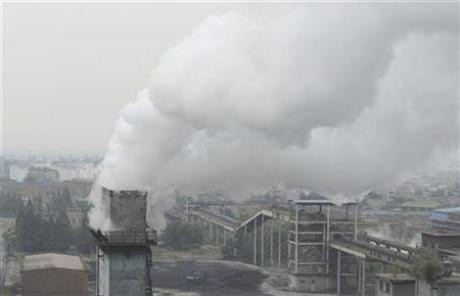Durban Set for Climate Talks Amid Deadlock Fears

Officials from across the world are due to converge in Durban on Monday for crucial climate talks.
A total of 10,000 officials from 194 countries will meet in a bid to arrive at a new climate change deal.
And the ongoing disagreements - over renewing the current climate treaty, the 1997 Kyoto Protocol, between India and China, one the one hand, and Russia, Japan and Canada, on the other - are likely to a create deadlock during the summit.
The Kyoto, which fundamentally sparked the argument between the rich and poor countries about who does what to combat global warming, brought the 2009 Copenhagen conference on the verge of a breakdown.
And the argument was prevented from derailing the conference at Cancun, Mexico, in 2010, by the strategy of "parking" the matter. But now it cannot be ignored or put aside as the Kyoto treaty has a deadline on Dec. 31, 2012. Developing nations led by China, the world's biggest carbon emitter, and India, now at number three, want the Kyoto Protocol renewed as it doesn't call for any action of their own, while imposing binding targets on industrialised states, an article in the Independent has noted.
Nevertheless, several industrialised countries regard this as unfair - the U.S., the world's second-largest carbon producer, was the first to raise the apprehensions and pulled out of Kyoto in 2011. Also, three major economic giants - Russia, Japan and Canada - have claimed that they are not going to sign a renewed Kyoto under any crisis.
The alarming deadlock seems more dangerous because the fresh figures on CO2 show that emissions are rising above anticipated levels. In 2010, Global CO2 emissions touched 33.51 billion tonnes from 31.63 billion in 2009.
According to the Independent, the rising Chinese economy is the key driver of the growth, with the country's emissions in 2010 recorded at 8.15 billion tonnes from 7.46 billion the year before. This increase of 694 million tonnes alone sweeps the carbon emissions which the UK produces every year. Though China is seen as the world's largest polluter, it is not involved in any compulsory treaty to cut down its emission.
"A global deal may be out of reach today, but we must provide a signal that it is our objective. That is absolutely crucial," British Energy Secretary Chris Huhne was quoted by the Independent.
The hope for the Durban conference rests with the third group of countries headed by the UK and EU, which are ready to tolerate a Kyoto mark two - but only on the condition that China and India agree to take on a role in a similar new climate treaty, which would entail all countries in a binding agreement to reduce CO2 at different rates.
© Copyright IBTimes 2025. All rights reserved.





















